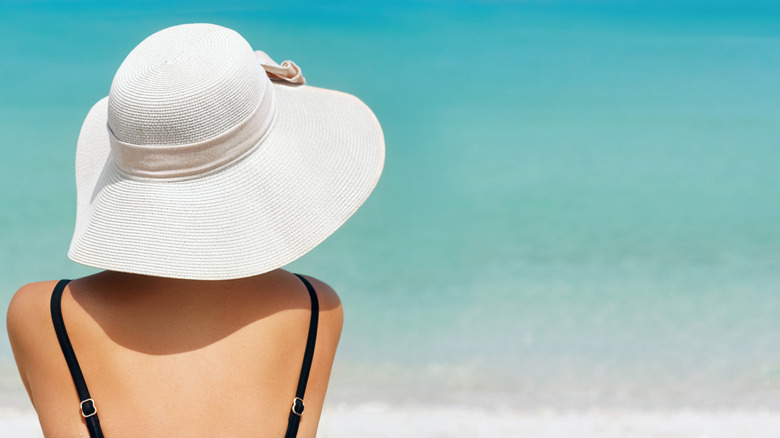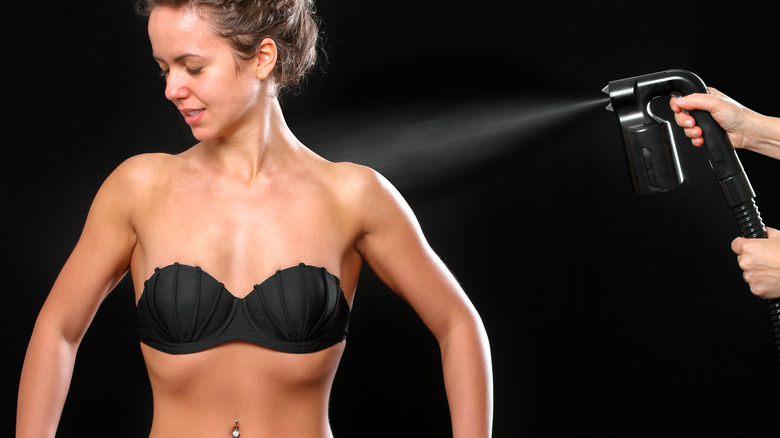How Spray Tans Really Affect Your Body
We were first warned about the health risks associated with natural sun exposure: burns, premature aging, and skin cancer to name just a few. Then came the alarms raised over tanning beds — NBC12 reported in 2013 that using a bed before you hit the age of 35 increased your risk of developing a deadly type of skin cancer by 75 percent. And while spray tans were considered a godsend for those of us who loved having tanned skin but didn't care for the risks that came with it, some doctors now think that the spray tan alternative may not be that much better either, depending on how its being used.
HuffPost says most tanning salons use a chemical called dihydroxyacetone (DHA), which triggers the color change on your skin when it comes in contact with dead cells. Yale professor of dermatology Dr. David Leffell says, "Most dermatologists agree that the spray-on tans or the tans in a bottle, which basically cause coloration of the outer layer of the epidermis — the stratum corneum — are safe and effective." But there's a catch.
Why spray tans may carry a risk
There's plenty you need to know when getting a spray tan, but one of the things the FDA says is that you need to keep your lips, nose, and eyes covered. That's because the agency isn't sure if inhaling DHA carries any risks, and spray tanners seem relaxed about taking those precautions. "DHA is really a sugar and so it has been evaluated by the FDA in an external application, unfortunately we don't have any studies with internal applications," dermatologist Chad Prather told NBC12. Not only does the FDA avoid endorsing spray tanning, NBC12 also says regulators didn't approve DHA's use or examine its side effects either. HuffPost says lab studies are showing that elevated levels of DHA can trigger free radical formation (of which "high levels have been linked to cell damage and cancer"), and NBC12 also says some studies are showing that inhaling DHA can lead to cancer.
So if you want to go to a tanning salon to enjoy a spray, you may want to consider plugging your nose, covering your mouth with some kind of mask that won't leave a mark, and keeping your eyes closed tight. Or better yet, walk past the tanning salon and head straight for the drugstore, where a bottle of tanning lotion might be had — because, at least for now, it's still considered a safer alternative.

